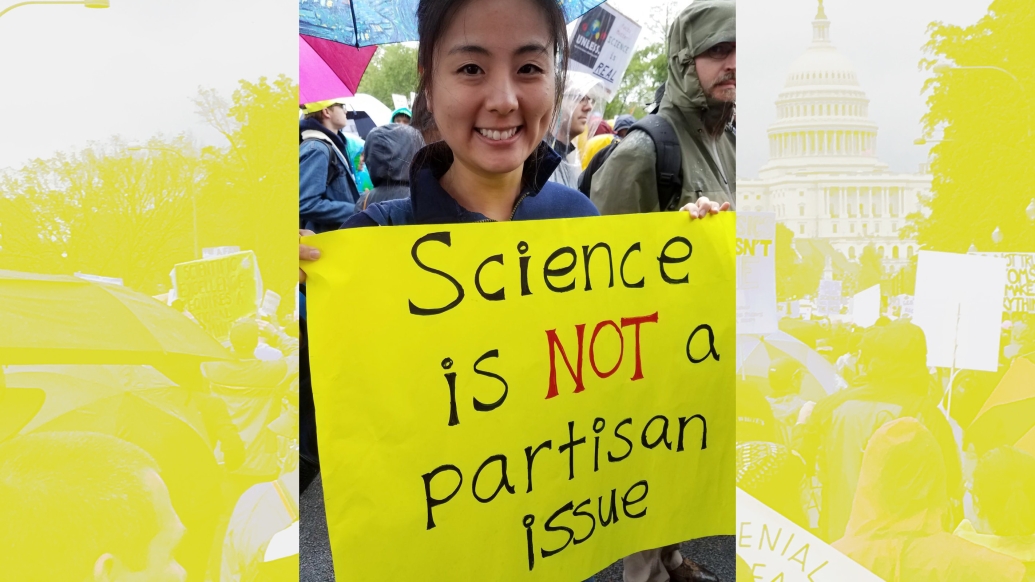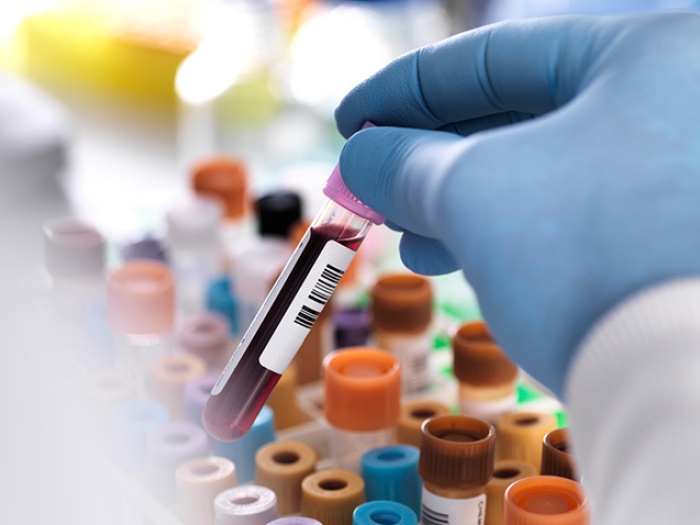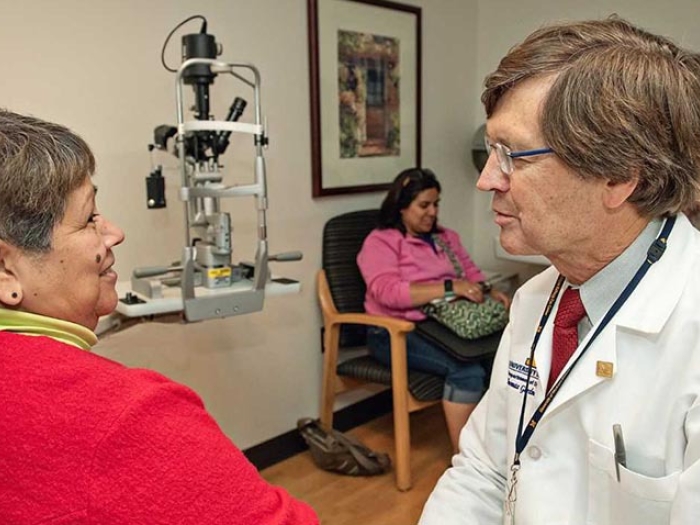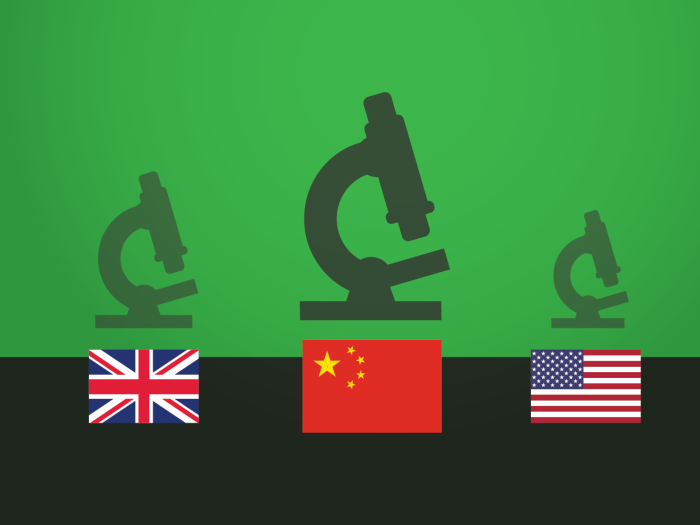Joining the tens of thousands of demonstrators worldwide was inspiring to a U-M grad student. Here, she shares her experience — and what ought to happen next.
7:00 AM
Author |

Through the pouring rain in downtown Washington, D.C., thousands of people, myself included, marched last weekend in support of reason.
MORE FROM THE LAB: Subscribe to our weekly newsletter
As participants in the March for Science, we carried numerous signs whose words ranged from witty to solemn, each one voicing opposition to the presidential administration's proposal to slash science funding, its denial of climate change and the rampaging of "alternative facts."
It wasn't my first time in the historical city, but April 22 was one of the few times I actually felt like I was part of living history.
As scientists chanted loudly and marched from the National Mall to the U.S. Capitol, I was humbled by the amount of people out in the streets supporting the cause, one that inspired more than 600 satellite demonstrations around the world. Perhaps they weren't all here with the same agenda in mind, but the sheer fact that so many scientists and science advocates were marching was amazing to me.
I also surprised myself by traveling to D.C. for the march. I am, after all, an introvert. I don't mind social interactions — but, as a genetics graduate student, I work best in isolation where I can focus and recharge. I often avoid the spotlight or confronting others about a problem; public speaking is one of my biggest anxiety-triggering situations.
But I have learned recently that speaking up is one of the only ways that your voice will get heard. Throughout my life, I've been accused of not knowing something or not working hard enough. And while the accusations were false, I didn't defend myself.
Later, I realized that my silence encouraged the same accusers to make more severe claims about my intelligence or work ethic because no one was fighting back. Some of these people, unfortunately, were the loudest voices in the room, which made me wonder if the others will be swayed by those dishonest opinions.
The solution: I had to be my biggest advocate. So I started correcting people, albeit respectfully, if what they were assuming about me was false. I was rarely accused of the same things again.
Speaking truth to power
I feel the same way about science. As someone who values scientific thinking and objective truth, I don't want to leave the fate of science to chance, potentially swayed by loud opinions based on false information.
SEE ALSO: Can Math Help Explain Our Bodies — and Our Diseases?
Science and what it represents are too important for society. If scientists and science advocates do not stand up for logic, who will?
Science has not only saved lives and made our lives better and easier, but also emphasized the importance and value of long-term investments. Rather than only focusing on the immediate gains, scientific discoveries encourage us to also focus on the future. Countless breakthroughs have taken many years to come to fruition.
For instance, Edward Jenner's initial success with the smallpox vaccine was in 1796 in England, but it wasn't until 1980 that smallpox was declared eradicated worldwide after years of refining the technology and convincing people that vaccination is safe and necessary (people initially feared that Jenner's smallpox vaccine, which was based on cowpox vaccine, would make them develop animal parts).
Now, people do not have to fear smallpox, a disease that kills 30 percent of the infected and leaves survivors with permanent scars or even blindness.
Life beyond the march
When I try to imagine a society where loud voices undermine the value of objective truth, I am horrified. If people can support their claims with alternative facts (e.g., climate change is not a man-made phenomenon and vaccines cause autism), what else can they get away with?
SEE ALSO: Finding Beauty Through a Microscope
Will we end up in a backward society where we are encouraged to cherry-pick the facts that fit our beliefs? If we stop investing in long-term research projects based on such claims, how will we make society better for our children, and their children?
While I chose to march in D.C., I understand that some did not march because the march did not seem like the right way to advocate for science. I, too, agree that maybe the march itself cannot be labeled as a solution until we also know what happens next.
Will we let the momentum die by not doing anything after the march? Or will we continue the momentum in other ways, such as fostering more discussion about the importance of science, focusing on clear science communication and participating in science outreach? The March for Science organizers also recognized this issue and declared this week the "week of action," designating each day to emphasize different aspects of science.
The march is only the beginning. And, at least to me, it was a good one — with thousands of people actively voicing their concerns. That might be enough to keep the momentum going and make a difference.

Explore a variety of healthcare news & stories by visiting the Health Lab home page for more articles.

Department of Communication at Michigan Medicine
Want top health & research news weekly? Sign up for Health Lab’s newsletters today!





